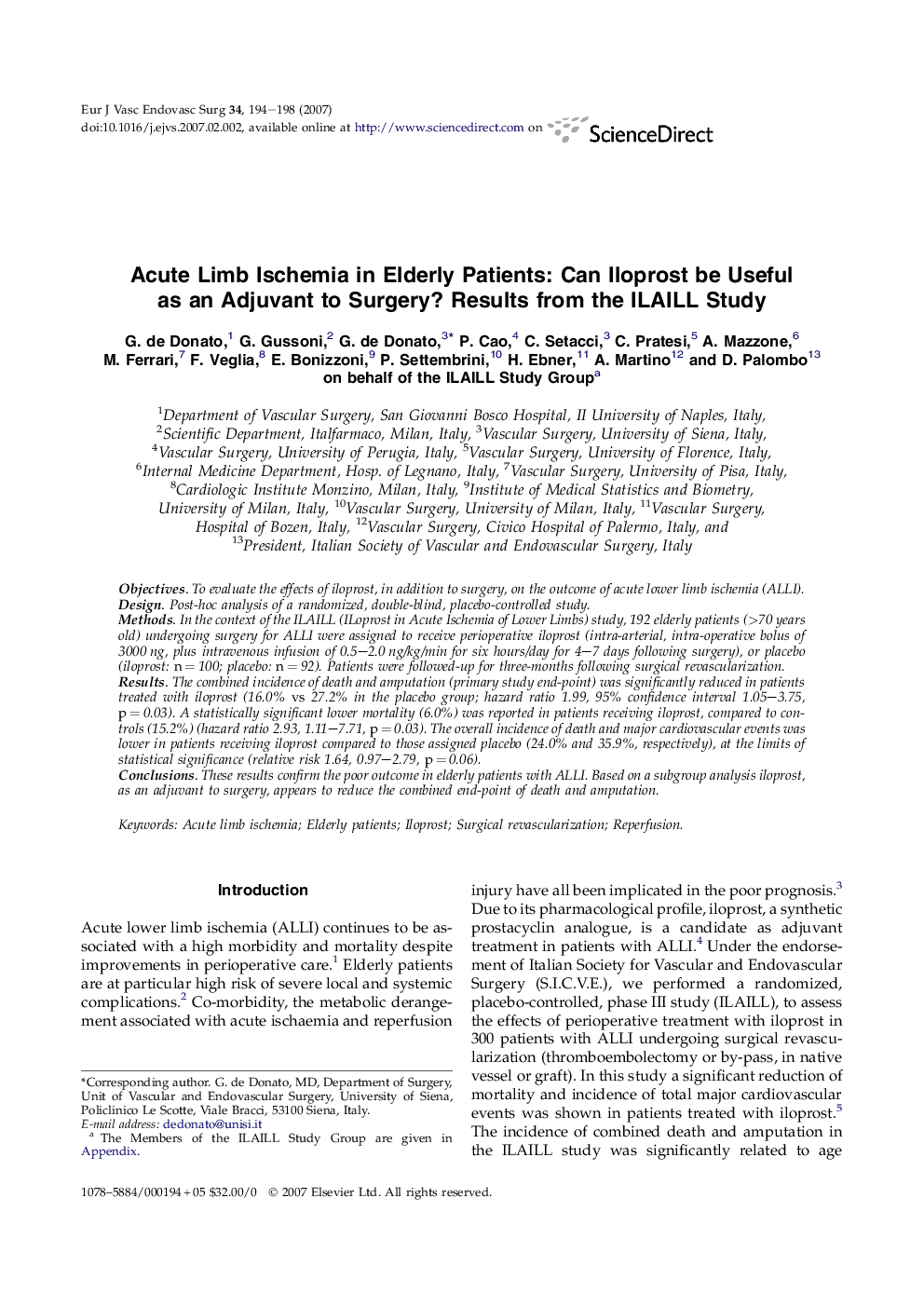| Article ID | Journal | Published Year | Pages | File Type |
|---|---|---|---|---|
| 2914152 | European Journal of Vascular and Endovascular Surgery | 2007 | 5 Pages |
ObjectivesTo evaluate the effects of iloprost, in addition to surgery, on the outcome of acute lower limb ischemia (ALLI).DesignPost-hoc analysis of a randomized, double-blind, placebo-controlled study.MethodsIn the context of the ILAILL (ILoprost in Acute Ischemia of Lower Limbs) study, 192 elderly patients (>70 years old) undergoing surgery for ALLI were assigned to receive perioperative iloprost (intra-arterial, intra-operative bolus of 3000 ng, plus intravenous infusion of 0.5–2.0 ng/kg/min for six hours/day for 4–7 days following surgery), or placebo (iloprost: n = 100; placebo: n = 92). Patients were followed-up for three-months following surgical revascularization.ResultsThe combined incidence of death and amputation (primary study end-point) was significantly reduced in patients treated with iloprost (16.0% vs 27.2% in the placebo group; hazard ratio 1.99, 95% confidence interval 1.05–3.75, p = 0.03). A statistically significant lower mortality (6.0%) was reported in patients receiving iloprost, compared to controls (15.2%) (hazard ratio 2.93, 1.11–7.71, p = 0.03). The overall incidence of death and major cardiovascular events was lower in patients receiving iloprost compared to those assigned placebo (24.0% and 35.9%, respectively), at the limits of statistical significance (relative risk 1.64, 0.97–2.79, p = 0.06).ConclusionsThese results confirm the poor outcome in elderly patients with ALLI. Based on a subgroup analysis iloprost, as an adjuvant to surgery, appears to reduce the combined end-point of death and amputation.
